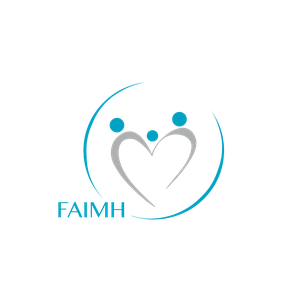If babies could vote, they’d want more than a kiss on the cheek at a rally. They’d want a voice in the issues that affect them. What would babies tell us about the type of candidates they’d support? Imagine what they’d tell us.
First, they’d choose parents who love them, period. Babies don’t care about their race, religion or sexual orientation. Babies want to be born to parents who are ready to be devoted to their care, so they’d support leaders who make family planning easy so parents-to-be can make the serious choice of when parenthood responsibilities are right for them. Unplanned parenthood means that too many of them are born to parents who are too young, too unstable, or too poor to take care of them. More than 62 percent of births in Florida are paid for by Medicaid, because sometimes parents cannot afford even to pay for delivery. That puts those babies way behind from the start when it comes to what they need to succeed.
For the parents who get hooked on pills or struggle with drug addictions, babies would support leaders who recognize it as a public health crisis and offer therapeutic options rather than locking up their moms and dads, sometimes for years without seeing them.
If babies could vote, they’d elect officials that support not just the minimum wage, but enough so that their moms and dads don’t have to work two jobs to make ends meet or have to make agonizing decisions about whether to pay the light bill or buy groceries and diapers. They would want their candidates to support affordable health care for everyone so their parents don’t stress out because they can’t afford the doctors' bills.
While their parents are busy at work, babies don’t want to be parked in front of television all day. Their little brains are doing big work, especially in the first 1000 days of life when they are hard-wiring the foundation for all their future learning. They would elect officials who understand that “bright futures” begin in the high chair, not on college campuses. They’d support scholarships for high-quality early learning programs that teach their parents to sing, read, and talk to them at the time when their brains are most receptive to learning. They’d know that programs that encourage play and getting along with others are equally important to teaching ABC’s.
Babies would want their political candidates not to just give talk about leaving no child behind, but rather to make wise investments so that every child gets an even start, head start, or the jump start they need to be successful. The success gap between rich and poor kids starts early, and once they fall behind, they can almost never catch up. By their second birthday, there is a 6-month word gap between rich and poor kids. By age 4 they’ve been exposed to 30 million fewer words. By third grade their reading scores are way behind, and by high school they score 125 points lower on the SAT than their more advantaged peers. Wise leaders know that early learning programs can prevent and narrow this gap.
Babies would want their political leaders to ensure that the Magic Kingdom isn’t just in Orlando but that children everywhere experience the joy and innocence of childhood; that every child goes to bed with a full tummy; that every child gets a bedtime story and kissed goodnight and never has to cry themselves to sleep; and that monsters and nightmares in their homes are only figments of their imagination and not reality; that children don’t have to shoulder adult responsibilities or be exposed to an X-rated world. If babies could vote, they’d support candidates who had common sense gun regulations so that in our innocent curiosity, gun accidents didn’t continue to kill at least 1 kid every other day.
If babies could vote, they would choose leaders who take climate change seriously. They know that in 50 years, the planet they inhabit will be drastically different. Weather patterns will make earth less hospitable to humans, spreading droughts and disease epidemics. Warming will swell the oceans so that much of Florida’s population who live and work on the coasts will be submerged. Babies would want leaders who will act quickly and wisely to keep climate change from becoming a nightmare.
Babies just want to come of age in a society that allows them to prosper in the nation’s wealth—not just the ones at the top. They would want society to recognize our shared responsibility for the well-being of children; to get communities to rise up to care for the children who need them—children who have never celebrated a birthday, children who have never seen a dentist, children whose nightmares come in the daytime, children who have no safe blankets to cling to, children who don’t have any rooms to clean up, and children who have never known the safe embrace of a father or mother. They would want a world where every child gets enough love to build a lifelong foundation of security so that they too can become nurturing, productive grownups who contribute to our nation’s economic growth.
If babies could vote, they’d tell our leaders to “use their words” to find common sense solutions to big problems like the economy, health care, climate change, gun safety, violence, racism, addictions, child abuse, unplanned parenting, and criminal justice reforms. Babies would build a HUGE bipartisan sandbox where there is plenty of room for everyone to play nicely together. Then, not just the children would be singing “if you’re happy and you know it”—we’d all be clapping our hands. So think of the babies when you go vote, because someday they will be the grown-ups. Your future and theirs depend on it!
Dr. Mimi Graham
Director
Florida State University Center for Prevention & Early Intervention Policy
Tallahassee, FL
mgraham@fsu.edu


